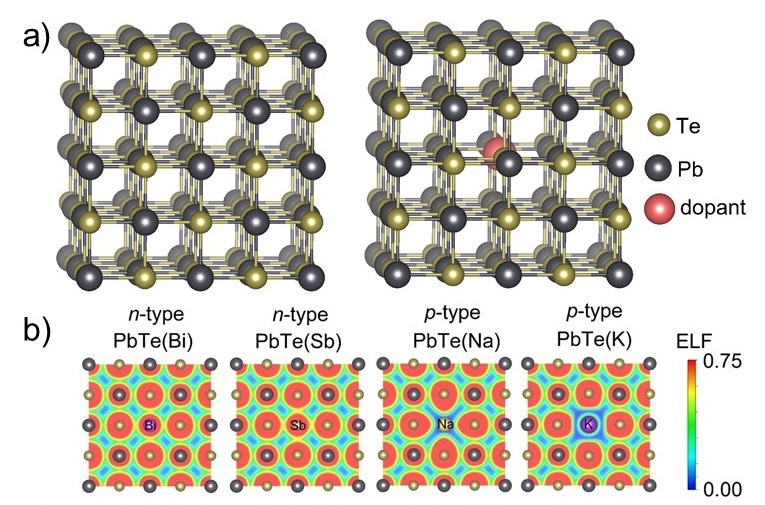According to scientists, waste heat, which enters the environment and remains unused, accounts for more than 70% of global energy consumption losses. With the help of thermoelectric materials — special semiconductors — the dissipated heat can be converted into electricity, which allows using the heat generated by the combustion of fuel to generate electricity. Thermoelectric materials can also be used to design cooling devices, which reduce energy consumption in domestic and industrial applications.
Searching for these materials is one of the key tasks of modern materials science. A team of scientists from Skoltech, the Emanuel Institute of Biochemical Physics RAS, as well as other leading scientific organizations in Russia and Israel studied how adding impurities to lead telluride (PbTe), a thermoelectric material, can affect its mechanical properties and extend the service life of a thermoelectric generator. The article was published in the Applied Physics Letters journal.
“Lead telluride is used on gas pipelines in the Yamal region to ensure the operation of sensors. It is impossible to put power lines there, and diesel engines require constant monitoring. Instead, small tubes with burning gas are used to provide heat. Using a thermoelectric material, the heat from the burning gas is converted into electricity, which is enough for the sensors to work,” said Ilya Chepkasov, the leading author of the study, a senior research scientist at Skoltech’s Energy Transition Center.
The material also has some disadvantages: It can deteriorate when it comes into contact with materials that have a different coefficient of thermal expansion. Easy deterioration may depend on doping, which is the process of adding impurities to the crystal structure of a semiconductor to change its electrical and thermoelectric properties and make conductivity controlled and predictable. There are two types of semiconductor doping. N-type doping results in a semiconductor with electrons being the main charge carriers. P-type doping produces a semiconductor, where the main role in charge transfer is attributed to the so-called “holes” — places that appear in an electronic bond after the electron exits. They have a positive charge and behave like positive particles.
Scientists have demonstrated that the chemical bond in the n-type PbTe weakens as the loosening orbitals are filling up. As a result, the material becomes more ductile and, with thermal expansion, the risk of its degradation is lower than in the p-type.
“Depending on the type of doping, the mechanical properties of the material may vary in different ways. In the n-type PbTe, the concentration of dopants slightly affects the mechanical properties. In the p-type PbTe, there is a significant increase in its hardness. We studied the reason for this behavior and found that n-type doping results in an extra electron on the loosening orbital. Because of this, the material becomes more ductile. Conversely, p-type doping results in a more rigid bond and a more fragile material,” added Ilya Chepkasov.
 (a) Crystal structure of considered supercells of undoped and doped PbTe. (b) Electron localization function of doped PbTe. Source: Origin of brittle behavior of doped PbTe-based thermoelectric materials
(a) Crystal structure of considered supercells of undoped and doped PbTe. (b) Electron localization function of doped PbTe. Source: Origin of brittle behavior of doped PbTe-based thermoelectric materials
The new results will help select a dopant that will improve the mechanical properties of lead telluride and increase the durability of a thermoelectric generator. The research was part of the Russian Academy of Sciences grant No. 19-72-30043 titled “Laboratory of Computer Design of new materials.” The project aims to develop new computational methods that will significantly enhance the capabilities of computer prediction of materials, taking into account such complex factors as temperature and correlation effects.
Contact information:
Skoltech Communications
+7 (495) 280 14 81
